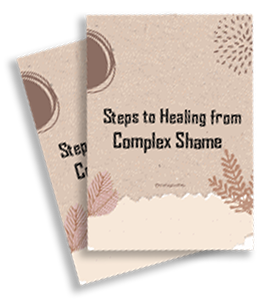How Strong women do boundaries
Boundaries. This sometimes seems like a bad word- or at least an ominous one. When I say it in session, I hear an audible sigh.
The push back I hear is a concern that when boundaries get introduced people get hurt. It’s hard to maintain boundaries.
First, things first. A boundary is not a rule that you impose on someone else to follow. It is a line that you draw for yourself. You can not control someone else’s behavior and you certainly can’t expect them to uphold your boundary. It doesn’t work that way. You uphold your boundary. You don’t expect someone else to do this for you.
Often my clients will tell me, “But I put up boundaries and he doesn’t respect them. He just breaks them. They still walk all over me or even when I tell them no, they still do it. Boundaries don’t work for me.”
My answer is “Of course he did. That’s human nature. For many people, when they hear a boundary.”– Don’t step over that line, for instance, what they hear in their mind is a preference. Or they don’t know you well enough to know how firm you are with your boundaries. OR they know you well enough to know that you are not firm with your boundaries and they don’t really have to adhere to what you just said.
Everyone will break a boundary from time to time, what matters is your response to it. If you do nothing, it’s you who are not upholding your boundary- not them. You might say, ”But didn’t they just disrespect me. Didn’t they just break my boundary?”. That is inconsequential because it is your boundary to uphold, not theirs.
If they repeatedly cross the same boundary that you are consistently upholding (and we’ll talk about how to do that later) you just got some really good information about them and you need to evaluate their place in your life. But for the most part, people respect you about as much as you demand to be respected.
We learn this super early in life. I used to do this with my parents when I was little. If I wanted to spend the night at a friend’s house. My mom’s initial reaction may have been no. That was a boundary she was setting. But I knew from experience that if I laid a bunch of pretty pleases, and promises about chores I would do and how I would make this all much easier for her, her answer would often change to yes. If I asked my dad the same question and he said no. Well, shoot. I was out of luck and wouldn’t even bother to prepare a comeback. It was futile. His boundary was firm.
Did I not respect my mother because I broke her boundary? No, I did respect her. I knew her boundaries were super firm in other areas and my dad is more relax. Dad was the one I asked for money. He apparently didn’t know how much anything cost and he would always give me way more than I needed. But she taught me from experience that her boundary in that area was not firm.
Sometimes people take advantage of us and we let them because we care about them. In little ways, that may not matter, but sometimes it does.
Boundaries are central to self-care.
Here’s a quick test to evaluate your boundaries in your relationships:
1. Are you regularly doing something for someone that they can do for themselves? (Enabling)
2. Are you putting their needs above your own most of the time? (De-valuing self)
3. Do you justify bad behavior?
3. Do you say no, but give in to pressure?
4. Do you expect them to hold your boundaries?
5. Do you say yes and resent them afterward?
6. Do you feel like you are responsible for another person’s happiness?
If you answered yes to more than two of these, you need to check your boundaries.
So, why do we need boundaries?
You need boundaries, my friend, so that you don’t burn out. Without boundaries, you develop resentment, you send a message to yourself and others that you shouldn’t be respected and you damage your relationships in the process. Healthy, intact boundaries create a better experience in relationships and a healthier empowered sense of self.
How do you establish or probably more importantly, how do you uphold boundaries?
There are two ways. One is internal and the other external. They are a couple and shouldn’t be separated.
You uphold your boundaries internally through your self-talk, which leads to creating a firm sense of self that will not be compromised. You have to actually believe that you even deserve to have firm boundaries before you can execute them. If you find that people are walking all over you, I promise you it’s because deep down, you don’t feel you deserve to be treated well. I don’t know what your story is about why that is, but it’s there.
So, you have to change this internal story. You need to speak these words to yourself daily:
- My wants, needs, and desires matter.
- I deserve to be treated well.
- I am in control of how I allow others to treat me.
- I will care for me.
How do you start to create boundaries in your life? By saying:
1. No
2. That doesn’t work for me.
3. I can’t help you
4. I’m not okay with that.
5. If you want to be with me, this has to change.
6. You are asking me to do something that I don’t feel is safe and I won’t do it.
7. I don’t agree with you.
8. Stop.
9. This is as much as I’m willing to do.
All of these can simply be repeated if anyone tries to push back. You can also add to it: I’m not going to change my mind. Then disengage. These are clear. When you hedge or use words like: I think, or I like or I would appreciate or this would be nice, that is not clear communication when it comes to a boundary. That’s clear communication about your desires. A boundary is stronger than a desire. It’s non-negotiable.
In order to uphold the boundary, you have to establish clear consequences for the boundary violation. If this happens, then this will be my response. If this feels like an ultimatum, it absolutely is. Listen to episode #80, Strong women give ultimatums.
Boundaries can be tough. We want to be liked and we want to give our love unconditionally to those in our lives. Just don’t forget to give yourself the same unconditional love.
You’ve got this!

Subscribe and Heal your Relationships.
You deserve a healthy, loving relationship and it starts with You. Learn how to untangle
Complex Shame™ and co-dependency to finally have the beautiful, secure relationship with
yourself and others that you’ve always wanted.
Subscribe and as a thank you, I’ll send you the Steps to Healing from Complex
Shame™.













